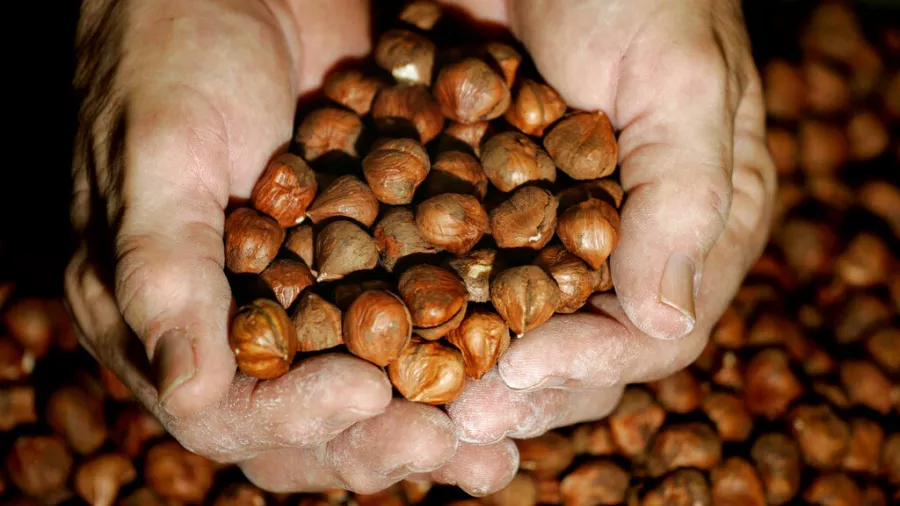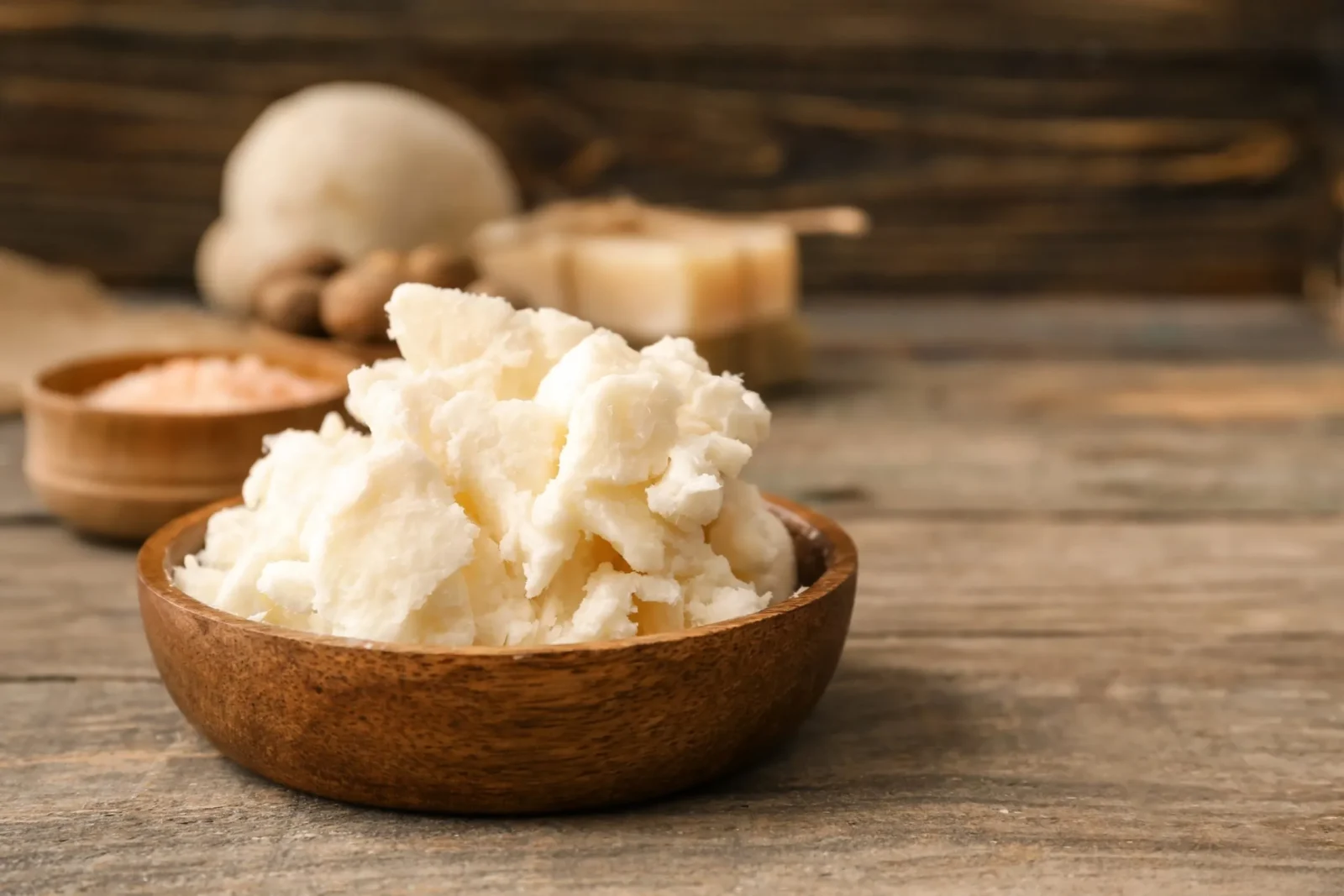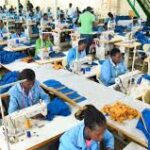Rows of women in the central Nigerian town of Bida sit close to the ground, rhythmically pounding shea fruit with sticks, cracking the dried shells to reveal the valuable nuts inside. For generations, this painstaking labor has been the foundation of a global industry that transforms these nuts into shea butter, an ingredient used in everything from cosmetics to chocolates. Nigeria produces nearly 40% of the world’s shea crop, and women are the backbone of this industry. Yet today, their livelihoods face an unprecedented crisis after the government suddenly imposed a six-month ban on the export of raw shea nuts.
The new policy, announced in August during peak harvest season, is intended to boost domestic processing and ensure Nigeria earns a greater share of the $6.5 billion global shea market. While the plan aims to strengthen local industries and create jobs, it has sparked economic pain in rural communities, where hundreds of thousands of women depend on shea production for survival. With insufficient processing facilities in the country, demand for the raw nuts has collapsed, leading to falling prices, reduced income, and growing despair among households that rely heavily on this seasonal work.
For women like 40-year-old Hajaratu Isah, the export ban has been devastating. She has spent her adult life cracking, drying, and preparing shea fruit to sell to middlemen, earning up to 5,000 naira a day enough to pay for food, her children’s school fees, and medicine for her recurring eye condition. Since the ban, her earnings have been cut by more than half, leaving her large family struggling to meet even the most basic needs. “We are feeling hopeless. We cannot eat, we do not have money, and our children can no longer go to school,” she says. Like her, thousands of women across Niger state, where shea trees dominate the landscape, are watching their fragile financial independence crumble.

The situation is equally grim for others, such as 55-year-old Fatima Ndako, who supports a household of 14. She says the announcement robbed her of sleep as she worried about how to keep her children and grandchildren fed. “When I heard about the export ban, I could not sleep… the money we make is what we use to feed our families. We are appealing to President Bola Tinubu to allow exportation again so that our children will not be pushed into illicit acts,” she pleads. Laborers hired to load trucks with sacks of nuts are also suffering, with their wages slashed in half as demand dries up.
Nigeria’s government insists the policy is necessary to end decades of exploitation. Officials argue that while Nigeria is the world’s largest producer of shea, the profits have largely gone to foreign companies who process the nuts abroad and dominate the international market. Presidential adviser Kingsley Uzoma defends the move, saying, “For decades, women have been stuck in a vicious cycle of poverty while middlemen and foreign processors reap the billions. This policy is about changing that dynamic, empowering our women, and giving Nigeria its rightful place in the market.” He frames the six-month suspension as a bold but temporary measure to force investments into domestic processing capacity.
Indeed, the ban coincided with the inauguration of a massive new factory in Niger state, owned by Salid Agriculture Nigeria Limited. The facility, described as Africa’s largest shea butter plant, boasts the capacity to process 30,000 tonnes annually for use in cosmetics, food, and pharmaceuticals. Its managing director, Ali Saidu, says the company is now receiving unprecedented calls from suppliers eager to offload their nuts. He acknowledges that lower prices have made it easier for his firm to secure supplies, something that was previously difficult when international buyers offered higher rates.
But critics argue that the ban was rolled out too suddenly, leaving traders, middlemen, and women’s cooperatives unprepared. Many are stuck with unsellable stock, forced to accept losses. “The ban is not fair. Had there been notification, we would have prepared,” one middleman laments. Although officials claim to have consulted industry leaders, many smaller actors say they were blindsided. The National Association of Shea Products of Nigeria has cautiously welcomed the policy as a “strategic repositioning,” but urged the government to provide relief for those already suffering.
Nigeria is not alone in this shift. Several West African nations, including Burkina Faso, Mali, Ivory Coast, and Togo, have already introduced restrictions on raw shea exports to encourage local value addition. Ghana has announced plans to phase in its own ban by 2026 while investing heavily in processing infrastructure. Proponents argue that such policies will allow Africa to capture more of the global shea market instead of exporting raw materials for others to profit from.
Yet for many Nigerian women, that vision of future prosperity feels distant. Their immediate concern is survival—keeping children in school, paying for medical treatments, and putting food on the table. With limited access to large factories like Salid’s and little government support, small-scale producers risk being left behind.
The Nigerian government has set an ambitious goal of capturing at least 20% of the global shea industry’s value by 2030, positioning itself as a dominant player in the sector. But unless processing capacity expands rapidly and equitably, the burden of transition will continue to fall on the women who form the backbone of the industry. For now, in villages like Bida, the dull thud of sticks striking shea shells no longer represents steady work and hope, but uncertainty and hardship.
The future of Nigeria’s shea sector is at a crossroads. If managed well, the export ban could spark industrial growth and empowerment. But if mismanaged, it risks deepening poverty for the very women it is meant to uplift. For families already living on the margins, the next few months will determine whether the promise of reform translates into real progress or whether survival remains the only priority.














Leave a comment